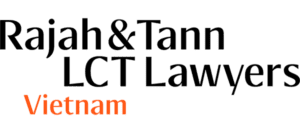Introduction
Since being placed on Financial Action Task Force’s (“FATF“) “Grey List” in June 2023, Vietnam has committed to enhance the effectiveness of its anti-money laundering (“AML“), countering the financing of terrorism (CFT), and counter-proliferation financing (CPF) regimes. Key steps implemented to achieve this include:
- making formal commitment to the FATF and the Asia/Pacific Group on Money Laundering (APG) in June 2023;
- putting into effect national action plans under Decision No. 941/QD-TTg and Decision No. 194/QD-TTg;
- introducing legislative amendments to the Law on Enterprises 2020 and Decree 01/2021/ND-CP on business registration; and
- enhancing beneficial ownership data management, oversight, and enforcement.
Vietnam has recently introduced a major legislative update on beneficial ownership under the Amended Law on Enterprises 2025 (“Amended Law on Enterprises“). This is accompanied by the enactment of Decree 168/2025/ND-CP on business registration (“Decree 168“) which replaces Decree 01/2021/ND-CP on business registration, and Circular 68/2025/TT-BTC on business registration standard forms (“Circular 68“). These reforms aim to align Vietnam’s corporate transparency framework with FATF’s Recommendation 24 on transparency and beneficial ownership of legal persons, and its “2023 Guidance on Beneficial Ownership for Legal Persons“. This move is part of Vietnam’s broader efforts to be removed from FATF’s Grey List and to meet international obligations under forums such as the Organisation for Economic Co-operation and Development (OECD), the International Monetary Fund (IMF), and the Indo-Pacific Economic Framework (IPEF).
The Amended Law on Enterprises
Key Changes in the Amended Law on Enterprises
- Definition of “Beneficial Owner” and Clarification on Indirect Ownership
- The Amended Law on Enterprises defines a “beneficial owner” (“BO“) as a natural person who either owns (directly or indirectly) 25% or more of charter capital or voting shares, or exercises control over the enterprise.
- It also clarifies that “indirect owner” refers to a natural person who either owns (directly or indirectly) 25% or more of charter capital or voting shares, or exercises control over the enterprise through an organisation.
- Declaration Obligations and Timing
Enterprises must declare the BOs at the point their incorporation. If there are any changes to the BOs, they must update the local licensing authority within 10 days. This obligation applies to joint stock companies (“JSCs“), limited liability companies (LLCs), and partnerships where the owner is a natural person. Listed, public, and state-owned enterprises are exempted from this requirement.
Additionally, JSCs are required to declare their shareholders which are organisations holding 25% or more of the voting shares. The declaration must be made in a prescribed form, Standard Form 11 of Circular 68.
Enterprises are not required to declare their indirect BOs.
Coordination with Other Laws
The Amended Law on Enterprises complements the Anti-Money Laundering Law (“AML Law“). While the AML Law focuses on due diligence, the Amended Law on Enterprises emphasises corporate disclosure of beneficial ownership. Both laws use the 25% threshold.
Additional Regulatory Clarifications under Decree 168 and Circular 68
Decree 168 provides the detailed legal framework for determining, declaring, and updating the beneficial ownership of enterprises in Vietnam. One of the notable developments is the obligation of enterprises to complete a standardised beneficial ownership Declaration Form (i.e. Standard Forms 10 and 11 of Circular 68, as may be appropriate) and submit the same, along with their business registration or subsequent changes. The required information includes the BOs’ full names, dates of birth, IDs/passports, nationalities, ethnicity, contact addresses, ownership/voting shares percentage, and forms of control (if any).
Circular 68 operationalises these declarations by providing unified templates and instructions for enterprises to follow during registration or change procedures. The forms are mandatory for both domestic and foreign-invested companies and are aimed at ensuring traceability, transparency, and legal accountability of all BOs.
Practical Considerations for Effective Compliance
Legal compliance with the Amended Law on Enterprises, Decree 168 and Circular 68 entails evaluating ownership and control of the shareholders/members in an enterprise, risk-based identification, assessing actual capital contribution, determining nominee structures, maintaining internal beneficial ownership files, and conducting due diligence in mergers and acquisitions (M&A).
International Trends and Benchmarks
As of July 2025, 163 countries have adopted or are planning to adopt beneficial ownership regimes. Applicable thresholds vary across these countries. For example, Argentina uses one share as the threshold, Senegal sets 2% as the threshold, and Vietnam, the United States, the United Kingdom, and Singapore observe a 25% threshold.
Exiting FATF’s Grey List – International Guidance and Lessons for Vietnam
Removal from FATF’s Grey List requires full implementation of a country’s action plan, a demonstration of the effectiveness of the action plan, on-site assessment, and FATF engagement from both the public and the private sectors. Countries that have successfully exited from the list include the Philippines and Pakistan. Cambodia remains in the list.
In order for Vietnam to be removed from the FATF’s Grey List, it must enforce the necessary reforms stipulated in the relevant laws and regulations including the Amended Law on Enterprises, Decree 168 and Circular 68, enhance inter-agency coordination, perform data verification, and conduct stakeholder training.
Conclusion
Vietnam’s reforms as discussed above show its commitment to align its legislation with global norms. On their part, enterprises should adapt their governance and compliance processes to align with beneficial ownership rules and support Vietnam’s efforts to exit from the FATF’s Grey List.
This Update was authored by Dr. Le Hong Phuc and Pham Hong Nhung.
Disclaimer
Rajah & Tann Asia is a network of member firms with local legal practices in Cambodia, Indonesia, Lao PDR, Malaysia, Myanmar, the Philippines, Singapore, Thailand and Vietnam. Our Asian network also includes our regional office in China as well as regional desks focused on Brunei, Japan and South Asia. Member firms are independently constituted and regulated in accordance with relevant local requirements.
The contents of this publication are owned by Rajah & Tann Asia together with each of its member firms and are subject to all relevant protection (including but not limited to copyright protection) under the laws of each of the countries where the member firm operates and, through international treaties, other countries. No part of this publication may be reproduced, licensed, sold, published, transmitted, modified, adapted, publicly displayed, broadcast (including storage in any medium by electronic means whether or not transiently for any purpose save as permitted herein) without the prior written permission of Rajah & Tann Asia or its respective member firms.
Please note also that whilst the information in this publication is correct to the best of our knowledge and belief at the time of writing, it is only intended to provide a general guide to the subject matter and should not be treated as legal advice or a substitute for specific professional advice for any particular course of action as such information may not suit your specific business and operational requirements. You should seek legal advice for your specific situation. In addition, the information in this publication does not create any relationship, whether legally binding or otherwise. Rajah & Tann Asia and its member firms do not accept, and fully disclaim, responsibility for any loss or damage which may result from accessing or relying on the information in this publication.














